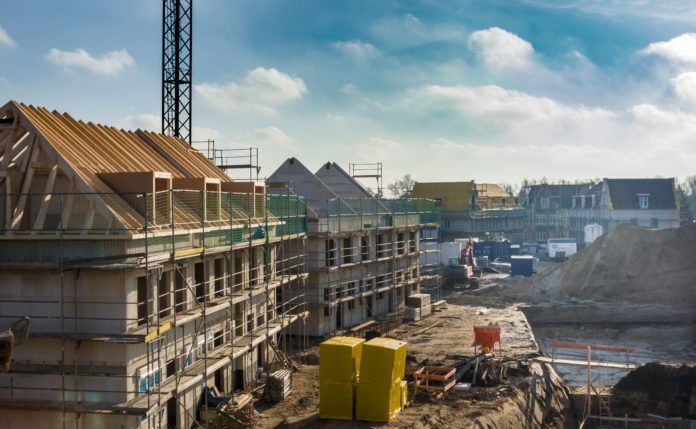The latest NFRC State of the UK Roofing Industry survey has reported that overall roofing contractors’ workloads and enquiries continued to increase in the first three months of the year, with further rises expected over the next 12 months.
However, it also revealed that some long-term challenges persist with regards to late payment, recruitment and material costs.
Work and enquiries continue to improve
One of the key findings of the latest survey is the continued growth in the demand for roofing services. Overall, a balance of 25% of respondents to the survey reported improved workloads in Q1 (41% reporting an increase minus the 16% reporting a decline).
This marks a significant rise from the 15% balance figure from the previous survey. Increased levels of enquiries for new work were reported by a similar proportion of respondents, with a balance of 27%.
The RMI sector of the industry had the greatest increases in work, with public, commercial and domestic RMI all showing strongly positive balance figures of 34%, 32% and 29% respectively. The Members’ outlook was also generally positive for the next 12 months, with 72% foreseeing an increase in work over that period and only 8% expecting a decrease.
The Yorkshire and North East region showed the strongest growth in workload, with 43% overall reporting an increase. This was followed by the North West and Scotland regions with balance figures of 34% and 33% reporting increases respectively. However, the survey also highlighted areas of the UK with less positive market conditions. For example, among those in Wales, half said they had experienced a decrease in workload with no respondents reporting an increase.
Challenges remain for the new build sector
The results of this latest survey highlight the continued low levels of activity in residential new build. Among the survey respondents that operate in this sector, 29% reported that their workload had reduced from the previous quarter with just 17% saying it had increased. This negative balance figure of -12%, compared with -10% in the previous quarter, indicates a worsening picture for this area of the industry.
While performing slightly better, the public non-residential new build and commercial new build sectors showed only marginal increases in workload (3% and 2% on balance respectively) in Q1.
Skills shortages persist
Fifty-three percent of firms experienced greater difficulty employing in the first quarter of 2024, a sizeable increase from the 44% in Q4 2023. Roof Slater and Tiler was found to be the most challenging role to fill, with 40% of businesses experiencing issues.
Late payment and rising costs
One of the biggest issues for NFRC Members remains the late payment of invoices. While improvement have been made, only 37% of respondents that have 30-day payment terms with their clients were, on average, paid within that period.
Similarly, of those with payment terms of 46 days or more, only 25% reported this was the average time in which they received payment.
While Members indicated continued improvements in the availability of materials, many are experiencing significant material price inflation, with 58% reporting increased prices in Q1 2024. A similar proportion (57%) stated they had seen labour costs rise since the start of 2024.
Commenting on the results, James Talman, CEO of the NFRC, said: “At NFRC, we are pleased to see the green shoots of recovery and growing demand in our industry. While some challenges remain, and not every sector is seeing the same boost in workload and enquiries, the continually improving market conditions in recent months shown by the survey findings is a cause for real optimism.
“With a general election set for the beginning of July, these findings also highlight the priorities for any future government wishing to support the vital work of the construction industry. This includes long term commitment to the public sector pipeline, expansion of the RMI sector in tackling energy efficiency, as well as working closely with the industry to reinvigorate the residential new build sector alongside tighter legislation on prompt payment, which is so vital to SME and sole trader businesses.”




